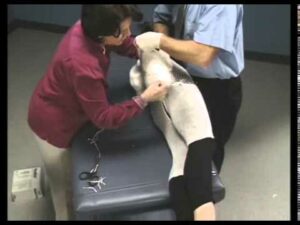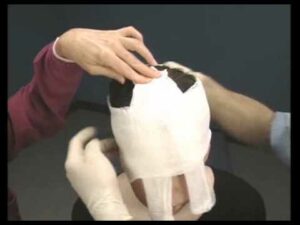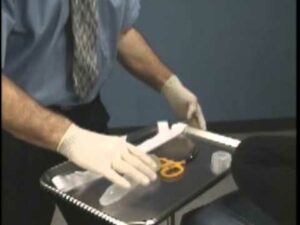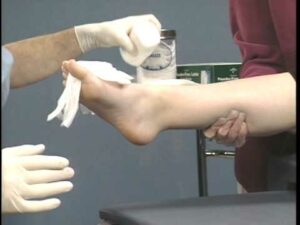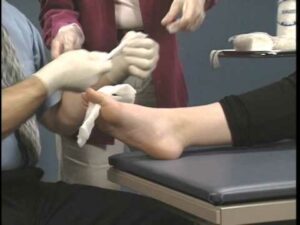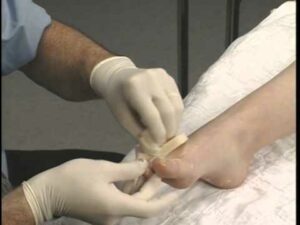Video
There are many different kinds of gauze, as well as supplies for securing wound dressings to the wound. We’ll discuss the different types of supplies you’ll need for wound care and where to find them.
We’ll demonstrate how to create securing “pair of pants” with stretch gauze and umbilical tape, in which dressing can be placed on a burn on a patient’s hip, lower back, and upper thigh.
The head is one of the most difficult parts of of the body to dress, but once you practice the proper techniques it feels much more natural. Learn the proper steps for securely dressing a head wound.
Finger wounds can be easily dressed with the use of a large plastic syringe and gauze wrapping. Learn how to properly layer and secure the wrapping over the wrist.
If the wound is located on the ankle or lower leg, then you do not need to cover the toes with your dressing. You can proceed with the wrapping without fan folding over the toes.
Most foot wounds can be taken care of with only wrappings and gauze. In this video, you’ll learn about fan folding and how to cushion the toes to prevent pressure sores.
After making sure you have all the necessary equipment at hand, it is important to cleanse the wound before dressing it. The skin all around the wound must be cleansed, in addition to the open wound itself. This helps to prevent nearby bacteria from infecting the wound.
Anyone can be trained to care for a wound, from a physician, to a family member, to the patient themselves. The paradigm for wound care should be centered around anyone able to give care, not just the physician.
Transcription A major step of basic wound care is the application of dressings. The best analogy for use in dressings is found in our military. The Navy is called the Layered defense of the carrier battle group. The aircraft carrier leads the carrier battle group, the carrier is protected in layers. If an enemy wants…
Dr. Reynolds speaks about the causes and remedies of carpal tunnel syndrome as it relates to workers compensation.


